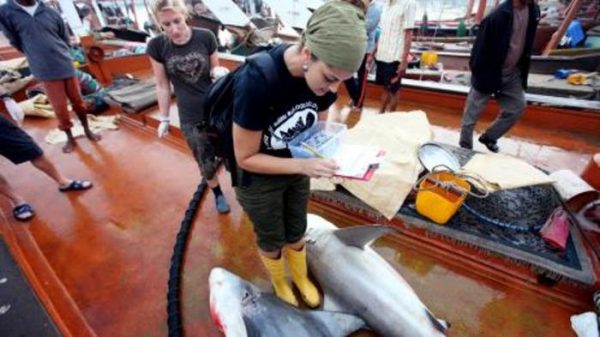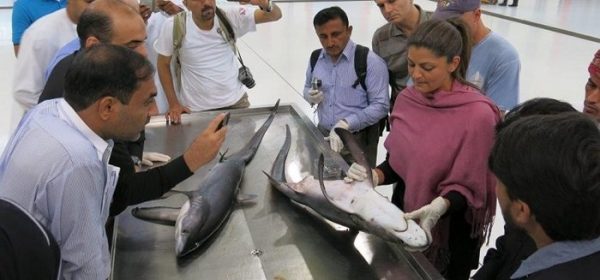
By Cedric Tannous
UAE-based Lebanese scientist, founder and lead scientist at Gulf Elasmo Project, Dr. Rima Jabado, is determined to save sharks in the Arab regionGlobally, up to 100 million sharks are killed yearly due to high levels of legal and illegal fishing, with some countries even using their fins and oils to cook up shark fin soup.
UAE-based Lebanese scientist, founder and lead scientist at Gulf Elasmo Project, Dr. Rima Jabado, is determined to save sharks in the Arab region and remind us how sharks are invaluable to the marine ecosystem.
With this non-profit initiative, Dr. Jabado focuses on advancing “research, education and conservation of elasmobranchs (sharks, rays, guitarfishes and sawfishes) in the Arabian Seas region.”
“Sharks play a crucial role in maintaining the health of our oceans and the diversity of life on Earth,” Dr. Jabado told StepFeed.
Even though their extinction’s impact on the ocean is still unclear, one can be sure it will cause “ripple effects on the population of their preys and eventually change the whole food web”.
Dr. Jabado’s latest project, the Conservation Status of Sharks, Rays, and Chimaeras in the Arabian Sea and adjacent waters, was funded by Save Our Seas.
The latter, founded by Saudi Abdulmohsen Abdulmalik Al-Sheikh, has been dedicated to protecting marine life for over a decade now.
The project came out with fascinating results, stating that the region has some of the most threatened populations of sharks and rays in the world.

That may be the case from time to time, but she explained that, in fact, she spends more time “at fish markets, working up dead animals,” writing grant proposals or reports, and meeting with government officials and fishermen to negotiate management measures.
“When I tell people about my job, they are shocked at first but then think it’s one of the coolest jobs in the world,” she added.
Dr. Jabado’s passion and fascination with marine life have been present her whole life.
“I was fascinated by sharks from when I was very young and this fascination never stopped. I think working with them has just been a natural evolution and I have loved every minute of it.
I didn’t choose my job. It chose me,” she commented.
Since she’s an expert on sharks and has spent much time around them, she confirmed that most sharks “are completely harmless, including the largest one of them, the whale shark… Not every shark is Jaws.”
“People are more likely to die from coconuts falling on their heads while sunbathing than from a shark while swimming or snorkeling,” she said.
In her opinion, we fear sharks mainly because we have come to see them as ferocious predators due to the way the media portrays them.
Movies such as Jaws, Shark Night, and most recently The Shallows have strongly fortified these views, while sharks are essential to our oceans and it’s our responsibility to make sure they don’t go extinct.
STEP FEED

Leave a Reply
You must be logged in to post a comment.